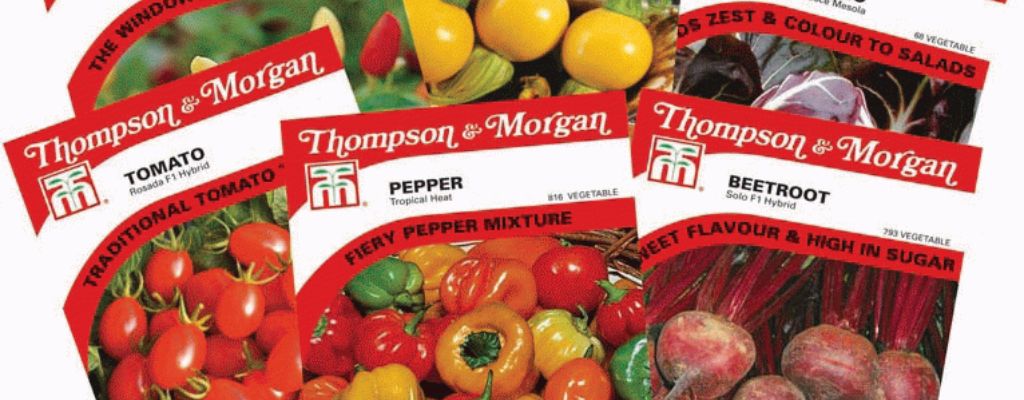What is the Thompson Seed Catalogue?
The Thompson & Morgan Seed Catalogue is a catalog of over 12,000 varieties of plant and garden seeds. It was created by Sir J.S.Thompson in 1868 and is the world's oldest and most comprehensive catalog of its kind. The catalog provides information on over 120,000 different types of plants, including fruits, vegetables, flowers, trees, shrubs and herbs.
Sir J.S.Thompson was a botanist who traveled around the world in search of new plant specimens to add to his catalog. He also developed new techniques for germinating and growing seeds, which made it possible for people all over the world to grow plants without having to travel to exotic locations.
The Thompson & Morgan Seed Catalogue is still in use today, more than 150 years after it was first published. It is a valuable resource for anyone interested in gardening or plant research
Why is it so Important
There are many reasons why it is so important to learn about and conserve the world's seeds. Seeds are the lifeblood of plant life, and without them, many plants would not be able to survive. Some crops, such as wheat and corn, rely on a wide variety of crossbred varieties to be successful. If these varieties were to disappear, the crops that we eat would also be at risk.
Seeds can also be used for food storage. If a crop is not available in the immediate area, people can store seed crops in case they are able to replant later. Seeds can also be used for medicinal purposes. For example, corn is used to make glucose for people with diabetes.
Seeds are important for many reasons, and it is vital that we continue to preserve them. By learning about why seeds are so important, as well as how to preserve them, we can help ensure that plant life continues for future generations.
How did Thompson change the world?
Thompson & Morgan is best known for his work with the Thompson Seed Company, which he founded in 1917. He developed new varieties of wheat, corn, and other crops, and helped to create the international seed trade. His work helped to feed the world and improve agriculture.
Thompson Seed Catalogue and It's Effect on Today's Agriculture
Thompson & Morgan is a man who changed the world with seeds. His catalogue, which was first published in 1868, was one of the most important sources of information for farmers and seed merchants. The catalogue introduced new varieties of wheat, maize, barley, and other agricultural plants to the world. It also helped to improve crop yields and to prevent soil erosion. In addition, Thompson's work led to the development of hybrid corn, which is now used extensively in agriculture.
Conclusion
If there's one man who deserves recognition for his impact on the world, it's Thompson. He was a farmer, an explorer, and a plant scientist — but most importantly, he was a pioneer of the modern seed industry. Through his work with cross-breeding and other experimental techniques, Thompson helped to improve the yields of many crops around the world. His discoveries not only changed agriculture, but they also had an enormous impact on human civilization as we know it today. Thanks to Thompson, we are able to enjoy foods like wheat bread and potatoes in virtually every part of the world. We could all benefit from his contributions, so let's remember him on World Seed Day (March 21st) and celebrate his legacy!




